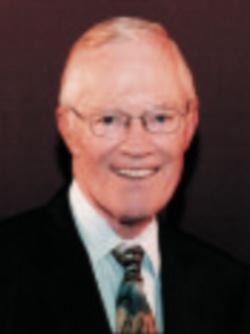Pawns of Their Agenda
All we know about her is that she is a psychiatrist who works in the counseling center of a large well-known American university, that she is a voice crying out against the ills of her profession, and that she is afraid of losing her job if she reveals her identity. In her recently released book, Unprotected, this "Anonymous, M.D." writes, "I once assumed campus medicine and psychology had one priority: student well-being. I'm no longer so naive. Radical politics pervades my profession, and common sense has vanished.… in my work at the counseling center, I see the consequences daily" (pp. xiv, xv).
This concerned doctor "tells the stories of college students who are casualties of the radical activism in my profession. These were students who turned to me for help in the midst of a crisis. They often wept, and sometimes, unknown to them, I wept with them" (ibid., p. xvi). One can see that she truly cares for her patients, but her concern is enough to have her run out of the profession.
"You probably didn't know what some insider psychologists are now revealing: that 'psychology, psychiatry, and social work has been captured by an ultraliberal agenda' and that there are 'special interest mafias' in our national organizations. Likely you didn't hear that certain points of view are 'squelched,' that there are 'horror stories' of 'shunning and intimidation,' and that many will not speak up, fearing ridicule, vicious attack, or loss of tenure or stature. A past president of the APA, in a book about this alarming situation, wrote, 'I lived through the McCarthy era and the Hollywood witchhunts and, as abominable as these were, there was not the insidious sense of intellectual intimidation that currently exist under political correctness.…'
Yes, the university, and my department, were committed to the principles of diversity and multiculturalism. This commitment was plastered all over our policy statements. But somehow, through the years, I got the sense that the diversity that I represented wasn't the same type to which they were so profoundly commited [sic]" (ibid., p. xix).
On page after page, this anonymous psychiatrist describes her colleagues' mindset: "Where I work, we're stuck on certain issues, yet neglect others. We ask about childhood abuse, but not last week's hookups. We want to know how many cigarettes and coffees she has each day, but not how many abortions are in her past. We consider the stress caused by parental expectations and rising tuition, but neglect the anguish of herpes, the hazards of promiscuity, and the looming fertility issues for women who always put career first. We strive to combat suicide, but shun discussion of God and ultimate meaning" (ibid., p. xvii).
Unprotected is not written from a religious point of view, nor is the author condemning the young people she treats and weeps for. "It bears repeating that it is my fellow professionals I fault here, not the young people we all strive to help, and that these are health, not moral, issues. I argue as a scientist, with biological facts, not biblical ones. Forget Leviticus—as you'll see, my data is from The New England Journal of Medicine and the Centers for Disease Control and Prevention" (ibid., p. xxi). Of course, the issues she deals with are moral issues, and Leviticus came before modern science and medicine—but she sticks to her fields of expertise; and in so doing shows the wisdom of our Creator.
Wendy Shalit is another young woman who is crying out in the wilderness of modern immorality, but she comes from a very different point of view—that of a recently graduated university student. She uses reason and logic to expose college and university administrators who seem to have lost all sense of reason regarding modern sexual values. Shalit has written powerfully about the national attention five Orthodox Jewish men received when they asked to be excused from Yale University's coed dormitory residence requirement—which included the requirement that students share common coed bathrooms:
Yale's official response to these Orthodox students spoke volumes. In a letter to the Times, Richard H. Brodhead, the Dean of Yale College, enjoined us to remember that "Yale College has its own rules and requirements, which we insist on because they embody our values and beliefs." Do they ever. At least now they admit as much. Thirty or so years ago… colleges all over the country… claimed that they were just being "neutral," that they were going to let the students decide for themselves what their sexual morality would be. Dean Brodhead's remarks prove otherwise. Yale's requirement that the sexes live together, he wrote, "embodies our belief that… when students enter this community, their daily interaction becomes a continual scene of teaching and learning: a place… to learn to work with others across lines of difference" (A Return to Modesty, p. 61).
Yale officials' statements show the university is not neutral about students' personal choices. Yale has deliberately chosen to throw young people together in a kind of learning environment that many young people find degrading. Shalit's coverage of this issue spurred her to write about similar occurrences at other universities. \I had to share a bathroom with four football players my sophomore year,\ one coed wrote her, "and it was the most horrible year of my life" (ibid., p. 233). Even the New York Times admitted as much:
"But buried at the end of The New York Times's 24-paragraph report on the 'open living arrangements that have been the vogue on campuses for years,' we learn that, by the way, there are actually some non-Orthodox students who aren't terribly pleased with today's dormitory arrangements, either. The final paragraph ends with this whispered cavil: 'But some quietly confessed that the permissiveness of residence life sometimes made them uncomfortable.' Quietly confessed" (ibid., pp. 61–62).
Clearly, there is a culture war—and the cannon fodder is our youth. While academics and social engineers experiment with their brave new world of sexual permissiveness—falsely labeled as "free of consequences"—millions of teen and young adult pawns are being ravaged by STDs, unwanted pregnancies, sterility, broken hearts, abortions, betrayals, cuttings, suicides, and all the psychological problems that go with these and other real-life consequences of breaking God's laws.
This is a war that parents and their children need to understand. Parents need to understand the battle being waged so they can help their teens make right choices and set strategies to counter these influences. Teens and young adults need to know that their teachers are not always looking out for their best interests, and that the world in which they find themselves can be hostile to their long-term well-being.
God tells us through the prophet Hosea: "My people are destroyed for lack of knowledge. Because you have rejected knowledge… [and] have forgotten the law of your God, I also will forget your children" (Hosea 4:6). This verse speaks of the knowledge of God's law—but even those who do not know God's law can be instructed by true science and reason. As Shalit wrote: "Nature exists; if you don't like what biology suggests about your ideology, maybe it's time to take another look at your ideology" (Unprotected, p. 147).






